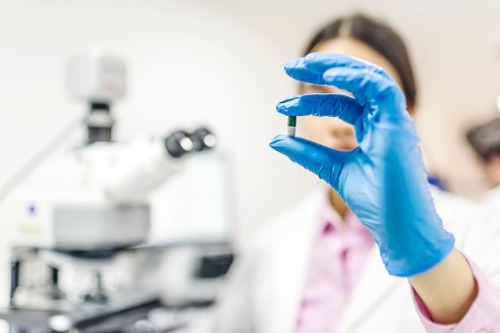Specialists say gaps in data and disjointed efforts are hampering efforts at progress

While research on a vaccine against the novel coronavirus has been hailed as a triumph of medical science and innovation, experts say that progress on developing COVID-19 therapies have been comparatively disappointing.
Dr. Jordan Feld, COVID-19 researcher and liver specialist at UHN's Toronto Centre for Liver Disease, told the Canadian Press that Canada’s troubling vaccine deployment efforts and the emergence of new variants have raised the stakes for effective drug development. However, the push for treatment tools to curb severe cases and deaths has thus far left much to be desired.
“It would have been nice to have seen a little more co-ordinated effort to try to develop antiviral therapies early on, and that's probably hampered all of our efforts at developing therapeutics,” Feld told the Press.
Feld’s work on COVID-19 centres around a protein called peginterferon-lambda, which he found could speed recovery for patients who were injected with the drug in a preliminary research study. He said institutions such as the University of Toronto, New York's Mount Sinai medical school, and Johns Hopkins have also been studying the drug, but all their work was planned independently.
A shared effort, akin to what happened in the Manhattan Project during World War II, could have allowed scientists to work together on client design and apportion work based on expertise and local situations, he said.
“This is a national emergency, we need to develop the bomb - in this case we need to develop the antiviral bomb or the vaccine bomb,” Feld said.
Echoing the view, Hamilton infectious disease physician Zain Chagla noted that most clinicians in the front lines of the fight against COVID-19 have a relatively scant arsenal. Current data from clinical trials of candidate COVID therapies, he said, draws from the experience of thousands of participating patients – far short of what’s needed to provide reassurance to millions suffering across the world.
“We should have had more patients enrolled in clinical trials to robustly answer these questions of what therapies worked or didn't work,” said Chagla, an associate professor of medicine at McMaster University.
One problem, he said, has been how some clinicians provide unproven therapies to desperate patients. Quebec’s Montreal Heart Institute recently touted colchicine as “a major scientific discovery,” but the National Institute for Excellence in Health and Social Services said the results from the underlying research, while positive, showed too small a benefit.
Feld also highlighted concerns with premature promotions of treatments, particularly those fuelled by misguided political motivations. “[W]hen people feel like it's good or bad - and especially if that changes with their political leanings - that may really affect the way you get people enrolling in a trial or not enrolling in a trial,” he said.



